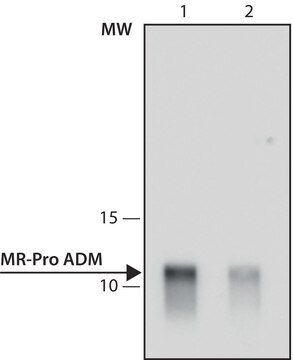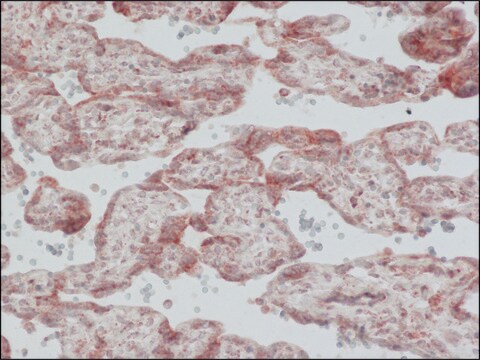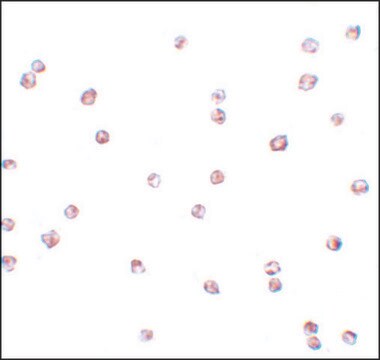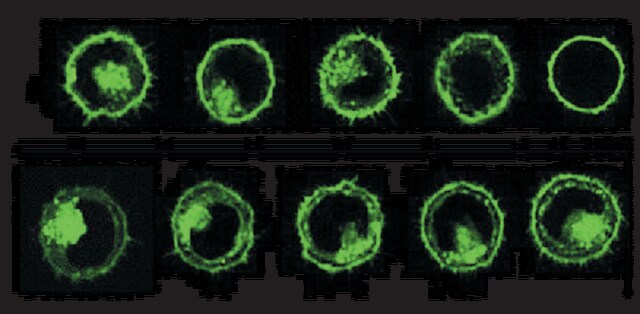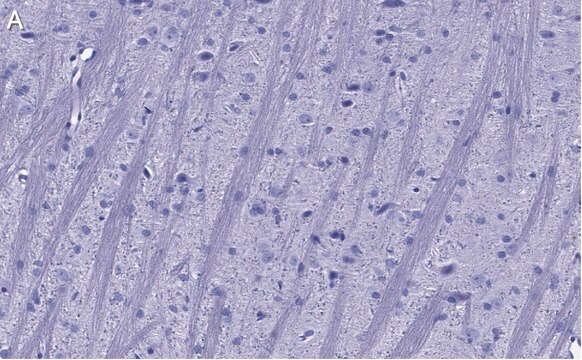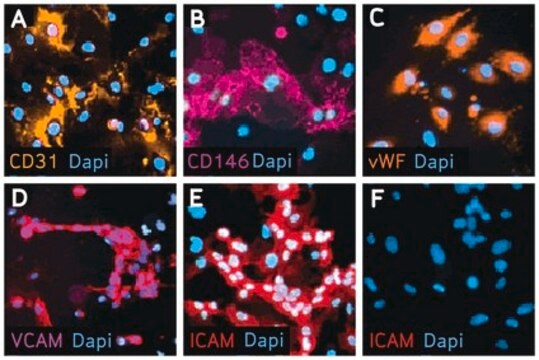SAB4200700
Anti-MR-Pro ADM antibody, Mouse monoclonal
clone MR2.1, purified from hybridoma cell culture
Synonym(s):
Midregional proadrenomedullin
About This Item
Recommended Products
biological source
mouse
Quality Level
conjugate
unconjugated
antibody form
purified immunoglobulin
antibody product type
primary antibodies
clone
MR2.1, monoclonal
form
buffered aqueous solution
species reactivity
human
concentration
~1 mg/mL
technique(s)
immunoblotting: 1-2 μg/mL using human recombinant peptide of MR-Pro ADM (amino acid 45-92)
immunohistochemistry: 2.5-5 μg/mL using Biotin/ExtrAvidin®-Peroxidase staining system of heat-retrieved formalin-fixed, paraffin-embedded human Pancreas sections
isotype
IgG2a
UniProt accession no.
shipped in
dry ice
storage temp.
−20°C
target post-translational modification
unmodified
Gene Information
human ... ADM(133)
General description
Immunogen
Application
Biochem/physiol Actions
Physical form
Legal Information
Disclaimer
Not finding the right product?
Try our Product Selector Tool.
Storage Class Code
10 - Combustible liquids
Flash Point(F)
Not applicable
Flash Point(C)
Not applicable
Choose from one of the most recent versions:
Certificates of Analysis (COA)
Don't see the Right Version?
If you require a particular version, you can look up a specific certificate by the Lot or Batch number.
Already Own This Product?
Find documentation for the products that you have recently purchased in the Document Library.
Global Trade Item Number
| SKU | GTIN |
|---|---|
| SAB4200700-100UL | 4061838037718 |
Our team of scientists has experience in all areas of research including Life Science, Material Science, Chemical Synthesis, Chromatography, Analytical and many others.
Contact Technical Service